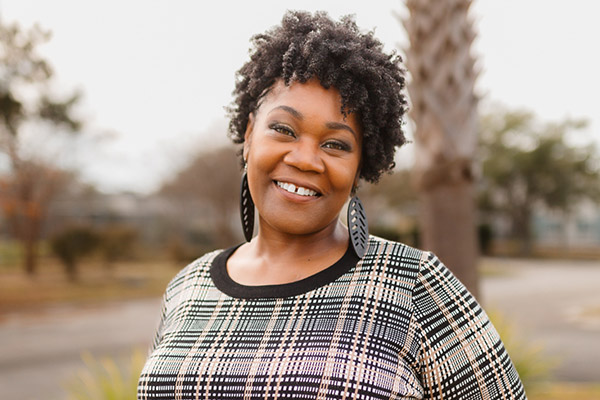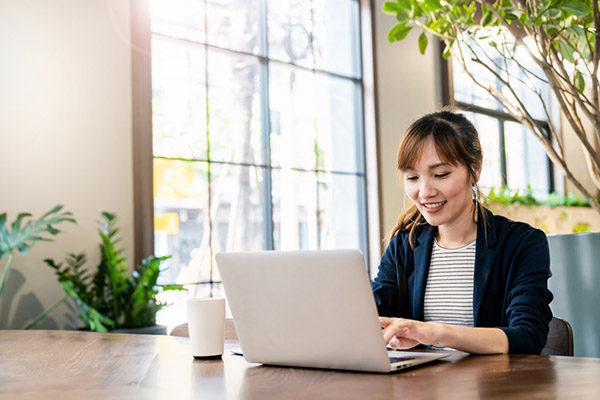01/12/2024

Women are often the primary caregivers in a household and extended families, and this can have a huge impact on our long-term financial health. In this episode of Business or Pressure, Allissa discusses some factors to consider in balancing personal and professional needs.
Author links:
Website: www.deepbreathdigital.com/community

HobaCare Jojoba is a premium quality, 100% pure jojoba oil that is highly beneficial for massage therapists. As a single-ingredient product, it aligns perfectly with holistic practices, providing an all-natural, chemical-free massage medium option. Jojoba oil closely resembles human sebum, which allows it to absorb easily and deeply into the skin, delivering a non-greasy, moisturizing experience that doesn't clog pores or cause allergic reactions. This unique property makes it an excellent medium for massage, enhancing tactile contact without leaving an oily residue. HobaCare Jojoba is also shelf stable and will not stain natural fiber sheets. By choosing HobaCare Jojoba, massage therapists can enhance their practice, offering clients a superior, skin-friendly experience that promotes both skin health and overall well-being.
Website: www.hobacare.com
Facebook: https://www.facebook.com/jojobacompany
Instagram: https://www.instagram.com/jojobacompany
0:00:00.0 Alyssa Haynes: HobaCare Jojoba is 100% pure high quality Jojoba and it's ideal for massage and body work professionals. The closest product to the natural sebum our skin produces, HobaCare provides a deeply nourishing massage medium that will not clog pores. HobaCare is non-allergenic, so you can use it on every client and not worry about allergic reactions. HobaCare is shelf-stable and it will not stain your natural fiber sheets, making it an excellent choice for professional use and saving you money. Hint, you won't have to replace your linen so often. With HobaCare Jojoba, you can offer your clients a superior experience that benefits both skin health and overall wellbeing. Our listeners can receive 20% off their order with code ABMP. Learn more at hobacare.com. That's H-O-B-A-C-A-R-E.com.
0:01:14.8 AH: Welcome to Business or Pressure, taking the pain out of massage business with me, Alyssa Haynes. This is your no-nonsense guide to building a happy, sustainable, massage therapy business. It is our mission to make sure that every massage therapist has the tools to succeed. So let's jump in. We are starting 2024 talking about caregiving work, and specifically uncompensated caregiving, and the balance of caregiving and expenses and income in a household and in extended families. This is one of those topics where you probably won't walk away with an actionable thing to do, but thinking about these factors and their relationships to our careers is really, really important and is going to be vital to how your career grows or doesn't, and does all of that intentionally. I've got a little bit of a beef with how caregiving works, especially that the work of women in the roles of mothers and as daughters is not compensated.
0:02:16.3 AH: Caregiving is physically and emotionally draining, and being the primary caregiver in a family can put us at a lifetime disadvantage financially. I am not preaching against family structures in which the woman is a primary caregiver, and I am certainly not saying that caring for her family is not a valid way to spend time. I am saying, as a woman who has absolutely prioritized caring for my family over earning income and advancing my career, that these conversations need to be had regularly, frequently, and with evolving ideas and thoughts because our stages of life change, our personal needs and desires and goals change, and the needs of those around us change too. I don't have all or any of the answers really. I do have questions and topics that I think should be explored and reexamined often in every family and community situation. I have had lots of conversations with colleagues and clients and friends to come up with these questions and topics and factors.
0:03:19.7 AH: This is certainly not all inclusive, certainly does not apply to every family and every situation, but I do think it's really, really important to keep these thoughts in our heads as we move forward. And I think it's important because study after study shows that women are doing the vast majority of uncompensated labor to keep families and households running, even in households with two adults, two parents. When both adults have full-time jobs, women are doing more of the unpaid caregiving work. It takes a huge toll on our mental health and our financial stability, both in the moment and later in life. Elderly women are twice as likely as men to live in poverty. This is all connected, and it is with that in mind that I want to work through a few of the most common issues with regards to women and income. And the first here is considering childcare costs.
0:04:15.6 AH: This is usually the first go-to conversation when deciding work schedules, and when a new child enters the picture, parents often feel that childcare costs as much as I would bring home, and that's valid. If I have to pay a sitter $20 an hour for three hours and I'm only bringing home a hundred dollars for that shift, is it really worth the effort for 40 bucks? But I want to reframe this. If you have a co-parent, reframe it so that each of you are covering half the cost of childcare. If you are in a two-parent family, why exactly is childcare solely the responsibility of the one person going back to work? Or of either of the partners exclusively? It's kind of six to one half dozen to the other when you pull finances as a family, but reframing where that childcare cost comes from and weighing it against the income of both partners versus just the one who's considering going back to work, again, primary unpaid caregiver at home, it equalizes the importance of each person's work outside the home.
0:05:21.2 AH: So rethink that. If I have to pay a sitter 20 bucks for three hours, so 60 bucks, and I'm only bringing home a hundred for that shift, is it worth the 40 bucks? While I'm only paying the caregiver 30 of that 60 bucks so I'm going to be bringing home 70 for that shift plus tips. So maybe it is worth it. It might not feel worth the effort for 40 bucks, but that's with me covering all the childcare. I'm splitting that equally between my co-parent and I, I'm going to make 70 bucks for that shift, and that might be worth it for me. We also don't consider the long-term loss of income. When I work that shift, I'm not just earning a hundred dollars. Even if my massage earnings only help me contribute a thousand dollars a year to retirement, if I don't work for one year, if I skip that thousand dollars, after 20 years of growth at 7%, that's an 8k loss.
0:06:10.6 AH: If you don't work for five years, that's almost $20,000 of loss in your retirement fund. I calculated all this by looking at five years of a thousand dollar annual contribution. And even if you never contribute more after the five years, at the end of 20 years, it would be about $17,000. So you're not just losing that hundred bucks, you're losing the compound growth. So you're not just turning down that $100 dollar shift, you're turning down potential retirement income that is exponentially larger than that. We also need to consider social security. The more you put into social security, the more you will get out later. And I would like to remind you again that women are more likely to live in poverty. So let's go back to our example. Paying $20 an hour for a babysitter to earn a hundred dollars for a shift seems silly.
0:06:57.7 AH: Paying $20 an hour to a babysitter to earn a hundred dollars in a shift plus the compound interest of $1,000 a year retirement contribution and more social security income later, that's actually a really good decision. And if you choose not to earn an income in order to prioritize caregiving at home, at the very least, get yourself a IRA, a spousal individual retirement account. Talk to a financial advisor about that. But even if you are a primary caregiver at home, if you have a spouse earning income and you are not earning income, you can open a spousal IRA, which allows a certain amount of that income to get contributed to you, your individual retirement account. Talk to a financial advisor, email me if you need a recommendation. It's not just about the math, it's about a loss of opportunity. When we are working, when we are seeing clients, when we are being in the community or networking spaces, it opens up opportunities to expand a career in a business.
0:07:55.4 AH: This includes all kinds of paths to income that are not just hands-on hours. We're talking about meeting colleagues who could become renters or business partners, we're talking about retail partnerships with other small businesses and maybe subcontractors and employees and all kinds of growth and onsite gigs. It's not just about losing that hourly pay. Less work means less opportunity. And this isn't just about having children. This is about the uncompensated work of daughters and women as community members. We're talking about caring for parents, and this is worth considering ahead of time, "What will my parents or elder relatives expect of me as they age and as they need help? And what am I willing to give?" 'cause there are huge cultural aspects here. Different families have different expectations. So what are your boundaries and what will you prioritize at work? Are you going to call and cancel clients to drive one of your parents to a last-minute doctor's appointment?
0:08:54.6 AH: Maybe you are and that is great. Or maybe you want to have these conversations with your parents so that they have other options and resources set up so that you don't have to. Personal decision worth considering ahead of time. To me, it feels like as soon as the kids got more independent and needed me less, my parents have started to need me more, and I wish I had considered and planned for this a little bit. So keep that in mind. There is a ton more to this topic, but it takes a lot of time to sink in and consider and apply it to everyone's very personal and specific situation. But these conversations are worth having, and I would love to hear how you are having them and how you have designed intentionally or by default, your life in this regard and your balance in this regard.
0:09:41.1 AH: If you have ever found yourself limiting or reducing your client numbers because you needed to finish the holiday shopping or you are the person who earns less money so you have to cancel clients if one of the kids is sick, or if you're just burning out and you're finding that your income-generating work is the first thing to get reduced in order to provide more uncompensated labor to your household or extended family, this conversation applies to you. A lot of us think we have the balance and then we realize how much we have shoved our own needs aside in order to care for other people. And you may get to the end of this thought process and think, "Yep, I'm good with this. I am comfortable reducing my individual income in order to provide more caregiving to X, Y, Z." That is valid. It is a thing I have done and continue to do here and there at different stages of my life, but is a thing that is worth thinking about because it should be intentional and not by default.
0:10:37.0 AH: I would love to hear how you balance, or are not balancing very well, your careers with your uncompensated caregiving and how you have designed your life in this regard. Today's high five is to all of the various women I have had conversations with about this topic over the last year or two, colleagues and clients and friends who have been so open about sharing their situations and their regrets and their challenges and their successes in these conversations and in these balances and in the outcomes of all these decisions about how we prioritize.
0:11:09.8 AH: Thank you to everybody who's been so open. If you have a question about running your business or an idea for an episode, please reach out via email at businessorpressure@abmp.com. You can also find me building websites and cultivating a community of massage therapists over at deepbreathdigital.com. And make sure you are subscribed to ABMP's podcast so you do not miss a beat. There is so much to learn about building and maintaining a massage business. We're going to cover the business and marketing side, the communication skills, and all sorts of other stuff like today to help you be successful. I will meet you right back here for the next episode. I can't wait.





